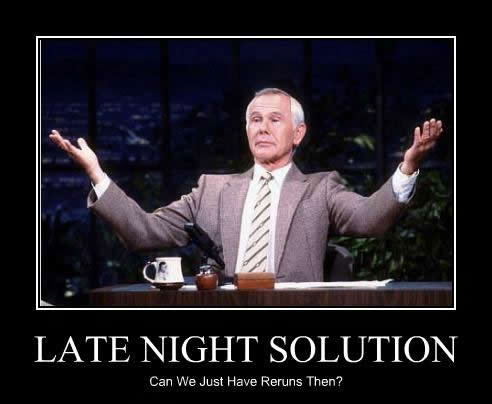I administer the United Brethren denominational news site at UBCentral.org. I wrote a number of articles regarding my recent trip to Honduras. In case you’re interested.
Advice for US Troops in Haiti
Thomas Ricks is a Pulitzer-Prize winning reporter who was formerly the military correspondent for the Washington Post. He’s well-regarded by the military, and has incredible access, as shown by his two thorough books on the Iraq War, “Fiasco” and “The Gamble.”
Ricks loves digging through obscure military documents and the writings of everyday soldiers. He publishes some of his findings on his blog on the ForeignPolicy.com site.
A few days ago, he published an article by retired Marine colonel Gary Anderson which gives advice to US soldiers doing humanitarian work in Haiti. It’s really interesting, common-sense stuff, and Anderson shows a lot of respect for the non-government relief organizations. Here are some excerpts:
Don’t be afraid to use non-traditional sources such as reporters, NGOs, and missionaries in the ongoing assessment. That angry reporter or Non Governmental Organization (NGO) worker, who wants to know why nothing has been done for village X, has just given you a piece of your assessment puzzle.
As soon as possible, get permission to fly non Department of Defense personnel in military aircraft. This…always gets overlooked until some overly officious Air Force Master Sergeant won’t let a desperately needed civilian doctor on an airplane.
Sea-base the operation as much as possible. Every American who spends the night on shore is one less Haitian that will get food or water that day. Ruthlessly weed out uniformed “tourists” who don’t have a real function.
Wherever possible, use local security forces to secure distribution sites. The last thing you need to have on CNN is American troops clubbing desperate villagers like baby seals at a relief distribution site.
Whatever you do, don’t do air drops–you are likely to kill more people than you help by crushing them with pallets or by starting riots.
Keep Your Relations with NGOs and IOs Professional. Most of these people are more likely to join the Peace Corps than the Marine Corps, but they are professionals in their own fields and will be as results-oriented as you are in their own way. Some have never dealt with the military before and may have an attitude when you first meet them. The best way to confront that is head on. Tell them, “We are both here to get a job done. Let’s leave our personal feelings at the door. You may even find that I’m not a war criminal.”
Don’t get involved with the disposal of human remains. Think how you’d feel watching your grandmother shoved into a ditch by a Russian bulldozer. CARE and some of the other major NGOs are funded and know how to stand up ad hoc mortuary companies to bury people in ways acceptable to the local culture. This will also get some needed money pumped into the economy. They are also smart enough to keep an eye on the local entrepreneurs. At some point in the operation, they will start to run short of bodies. Gruesome as it sounds, some of these people in past disasters have dug up bodies to get paid for burying them multiple times. You would never have thought of that; leave that sort of thing to the pros.
Avoid going high tech. Mobile surgical field hospitals and reverse water treatment purification units are wonderful things, but you stand the risk of raising local expectations so high that they won’t want to part with them, and they wouldn’t be able to maintain them, even if you could leave them.
Sadly, those who will die from immediate injuries sustained in the earthquake will likely have done so by the time you get there. What will really be needed are internists with qualified interpreters who can treat the invariable gastrointestinal diseases that will follow from drinking bad water.
French Terror Threat Levels
In the United States, we color-code our terror threat levels. The French are more specific.
Level 1: Run
Level 2: Hide
Level 3: In Fetal Position, Begging for Mercy
Level 4: Surrender
Level 5: Collaborate
Robert Parker, Creator of Spenser, Dead at 77
 Robert Parker, one of my favorite writers, died on Monday. He wrote 37 Spenser mysteries, short books that take practically no time to read. He also kept three other series going–Jesse Stone, Sunny Randall, and a western series (from which the movie “Appaloosa” came).
Robert Parker, one of my favorite writers, died on Monday. He wrote 37 Spenser mysteries, short books that take practically no time to read. He also kept three other series going–Jesse Stone, Sunny Randall, and a western series (from which the movie “Appaloosa” came).
I’ve got three Parker books sitting on my shelf, unread–the latest Spenser, Stone, and Randall books. I’ve read all of the others. Word is that several more books are finished.
Parker died writing his latest Spenser book. He was found at his typewriter, dead of a heart attack, by his wife Joan. They’d been married 53 years. All of his books were dedicated to Joan. Look it up.
Everyone calls him the successor to Raymond Chandler, and maybe he is. But Spenser bears little resemblance to Philip Marlowe, and Chandler produced only a handful of books. Ross MacDonald might be a better comparison, though again, the similarities are few. Parker reinvented the private investigator. Spenser himself may not be so unique, but having a sidekick like Hawk is certainly new.
A Chandler book can be savored, because of the clever writing, the funny turns-of-phrases which Chandler pull off. Parker is just as witty, but in a more character-driven way. For example: the sparse interplay between Spenser and Hawk. It’s delightful stuff.
Spenser, Hawk, Susan, Quirk, Rachel Wallace, and a variety of guys he could call on when he needed some muscle–these are fascinating, well-defined characters whom I’ve been reading about for 25 years (I read my first Spenser book somewhere around 1984). Spenser never aged during that time. Being a Korean War vet (like Parker), he should have been quite old by now.
Some things I picked up in reading tributes to Parker:
- He wrote a total of 60 novels, starting with “The Godwulf Manuscript” in 1973 (the first Spenser book).
- We never learn Spenser’s first name.
- He wrote five double-spaced pages a day, 1,250 words, 6 days of the week (took Sunday off). At that rate, he cranked out a book every three months.
- He never knew what would happen next in a book, and finished books without revising them. He didn’t rewrite, didn’t do a second draft, and didn’t reread it when done. He’d turn the manuscript over to Joan, then begin the next book.
- In recent years, he was getting a $1 million advance per book (and doing three books a year).
- Of the tributes I read, the best was in the Telegraph, from England.
FactCheck.org – Biggest Falsehoods of 2009
FactCheck.org summarized the top falsehoods of the year in “Whoppers of 2009.” It’s a month old at this point, but still interesting. The list begins with falsehoods from conservatives, then falsehoods from liberals, and then hits some individual topics. Some falsehoods that made the list:
- Statements about “death panels” by Sarah Palin and others.
- Claims that Obama is proposing a single-payer system like Canada’s, which none of the major bills have advocated (not that it matters at this point).
- That the government would dictate which medical procedures doctors can perform.
- Four different healthcare-related statements by President Obama.
- Fear-mongering about the H1N1 vaccine (which, thankfully, didn’t develop into the health crisis which, initially, it looked like it might).
- Continued nonsense from the birther people, who insist Obama wasn’t born in the USA.
- Various unfounded statements that Obama would restrict gun rights in various ways.
It’s quite an interesting summary, and good to be reminded about what was and wasn’t true amidst all the things we heard in 2009.
Separated at Birth?

Republican strategist and pundit Mike Murphy, and Babylon 5’s Lenniere (played by Billy Mummy, the original Will Robinson on “Lost in Space”).
Command and Controlling a Humanitarian Crisis
Slate ran a very interesting article titled, “Why Did We Focus on Securing Haiti Rather Than Helping Haitians?” We’ve all heard various news reports about how aid was reaching the airport, under US control, but not Haitians. This article talks about that.
We sent in naval ships and 10,000 troops, and the military did what it does best: command and control.
“Troops? Port-au-Prince had been leveled by an earthquake, not a barbarian invasion, but, OK, troops. Maybe they could put down their rifles and, you know, carry stuff, make themselves useful….
“Like a slow-witted, fearful giant, it built a wall around itself, commandeering the Port-au-Prince airport and constructing a mini-Green Zone. As thousands of tons of desperately needed food, water, and medical supplies piled up behind the airport fences–and thousands of corpses piled up outside them…the military’s first priority was to build a ‘structure for distribution’ and ‘to provide security.’
Forget hunger, dehydration, gangrene, septicemia–the real concern was ‘the security situation,’ the possibility of chaos, violence, looting.”
The article talks about how military flights were given priority over planes bearing much-needed relief supplies. That didn’t change until the United Nations intervened.
“Meanwhile, much of the aid that was arriving remained at the airport. Haitians watched American helicopters fly over the capital, commanding and controlling, but no aid at all was being distributed in most of the city….
“Why the paranoid focus on security above saving lives? Clearly, President Obama failed to learn one of the basic lessons taught by Hurricane Katrina: You can’t solve a humanitarian problem by throwing guns at it. Before the president had finished insisting that ‘my national security team understands that I will not put up with any excuses,’ Haiti’s fate was sealed. National security teams prioritize national security, an amorphous and expensive notion that has little to do with keeping Haitian citizens alive.
“This leaves the more disturbing question of why the Obama administration chose to respond as if they were there to confront an insurgency, rather than to clear rubble and distribute antibiotics and MREs.”
I suspect all of this has been solved at this point, and the focus is on saving lives, where it should have been from the beginning, rather than on carrying out a military mission. Maybe this emphasis on security only lasted a couple days. But still.
Rehab in Haiti
Amy Sullivan, writing on the Swampland blog, addresses the issue of John Edwards’ current trip to Haiti.
I have no doubt that Edwards, with his long and admirable commitment to poverty issues, really wants to do what he can to help in Haiti. It
also seems likely that this sounded to him like an EZ-Pass lane to get to image rehabilitation more quickly.If I were Jon Stewart, this is where I’d say: “Edwards. Meet me at Camera 3.”Sir, it’s obviously killing you to have fallen so far, even if it was
your fault and you do still have millions and millions of dollars. You
may possibly have a chance at some day rehabilitating your image. But
you’re going to have to follow these steps:Step 1. Go away and keep your mouth shut.
Step 2. Seriously, you can’t skip Step 1–go back and try again
.
Doom and Gloom from the Fire Swamp
Michael Sherer, over at Swampland, wrote a piece titled “Five Ways Obama Went Wrong.” Then, he wrote a follow-up called “Swampland Responds: What Went Wrong for Obama,” which used reader comments from his previous post.
It’s very interesting stuff. Some great insights.
Charles Krauthhammer, on Fox, loves apocalyptic hyperbole. He’s prone to statements like: “If this doesn’t pass, Obama’s presidency is over.”
We’re hearing a lot of nonsense like that in relation to Scott Brown’s win in Massachusetts. I, for the record, am delighted that Brown won and broke the super-majority. I’m tickled pink. I’m disgusted with the way healthcare reform has gone.
But after just one year, don’t you think it’s a bit early to write Barack Obama’s obituary? As it was with Bill Clinton?
A number of good things have happened under Obama’s presidency, many things which I’m very pleased about (but which don’t necessarily get much attention). But the healthcare mess and deficit spending overshadow everything.
I’m hoping Obama can get back on track with some of the ideals expressed in his campaign and in “The Audacity of Hope” (a book I loved). I’m not confident he will, and in my cynicism not even confident those were heart-felt ideals. But it’s okay to hope. In two years, the gloom being expressed right now could be a distant memory. He’s still in the early days of his presidency.
I suspect Obama’s doing a lot of soul-searching right now, and realizes he got caught up in the Washington game in a rollercoaster year of crises. In his deep desire to pass healthcare reform, he allowed an “ends justify the means” mentality to rule, which inserted what is essentially blackmail and corruption into the package. Either he never intended to fulfill the ideals of his campaign (Dick Cheney: “We will not be bound by the things we had to say during the campaign”), or Reality stampeded him away from those ideals.
I’d love to seem him, in his State of the Union Address, say, “The deals made in the quest for universal healthcare are wrong, should never have been allowed. So I’m calling on Congress to scrap what it’s done so far, and start over. We still need healthcare reform. But we need to do it right.”
That’ll never happen, I realize. But it would restore some confidence on my part. And I do believe he’s a person of ideals, whose heart is to be a different kind of politician. There’s still time to resurrect that potentially transformational person, though a whole lot of damage has been done.
I might be wrong on that–I’ve been burned so many times by earnest-sounding politicians, most recently GW Bush, that I’m terribly cynical–but it’s what I saw in “The Audacity of Hope,” which shows a man who has thought deeply about a whole lot of issues. So though I’m disappointed right now, even gloomy, I cling to a few tablespoons of hope.






